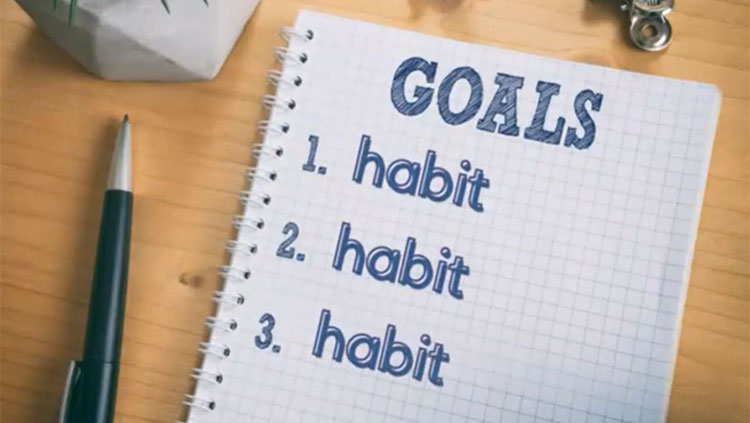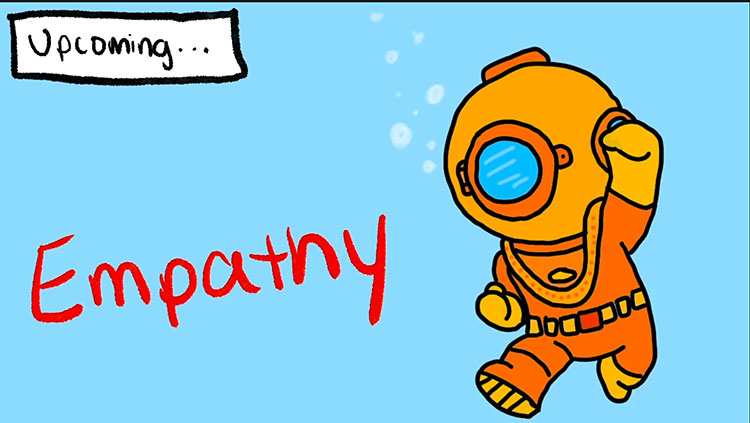When you drink tea, coffee, or other caffeinated beverages, two chemicals — the caffeine in those drinks, and the adenosine produced by your body — enter into a tense competition in your brain.
Adenosine makes you feel tired, while caffeine makes you feel alert and energetic. As you drink, the caffeine enters your brain and blocks adenosine from doing its job, which is why you feel less sleepy.
But be careful! Drinking lots of caffeine can heighten your tolerance to the drug, requiring you to consume more of it to feel its energy-boosting effects. Some people also experience fatigue or headaches after they stop consuming caffeine altogether.
This is the third place winning video from the 2025 Brain Awareness Video Contest.
Created by Andi Liu
CONTENT PROVIDED BY
BrainFacts/SfN
Transcript
Oh, hey there, what are you doing?
Well, I got a neuroscience presentation due in class tomorrow, and I got no idea what to do. I'm so tired. I didn't sleep at all last night.
Here, drink coffee. This will help you feel more awake.
Oh, thank you, Mr. Narrator. Hey, why does coffee do that?
Cells use the famous chemical adenosine triphosphate for energy. ATP breaks down into a neurotransmitter called adenosine, so as you go about your day, ATP increases in your brain, also increasing the amount of adenosine. Adenosine makes you feel sleepy, so it makes sense why the longer you stay awake, the more tired you become.
When you sleep, adenosine levels decrease because of a protein called adenosine kinase. However, when you stay awake for long periods of time, adenosine doesn't get cleared, which is why you feel really tired right now.
So how does this “adeno"— whatever make me sleepy?
On the postsynaptic ends of neurons exist different types of proteins called adenosine receptors. Adenosine wants to bind to these, and there's four of them: A1, A2a, A2b, and A3. The only ones we need are A1 and A2a receptors, though.
A1 receptors are found on wake-stimulating neurons. When adenosine binds and activates A1 receptors, this happens:
OMG, you are so loud! Can you be quiet? I'm trying to sleep!
Sorry.
Wake-promoting neurons increase arousal in the brain, but adenosine inhibits these neurons.
You said there was a second receptor? A2 something?
Ah, yes, the A2a receptor. This receptor is found on sleep-promoting neurons. When adenosine activates this receptor, it inhibits the inhibitor of these neurons.
Go to sleep! Go to sleep! Go to sleep!
TLDR: Adenosine makes wake-neurons less active and sleep neurons more active.
Okay, Mr. Know-it-all. If you're so smart, tell me why coffee keeps me awake.
Tea, coffee, and energy drinks contain a chemical called caffeine: AKA, adenosine receptor antagonist.
They fight each other?
Well, they're competing with each other. See, caffeine absorbs into your bloodstream 45 minutes after ingestion, easily passing through the BBB [blood-brain barrier] and entering the brain. Adenosine and caffeine both want to bind to A1 and A2 receptors. Because they have a similar chemical structure, caffeine binds to adenosine receptors and blocks adenosine from binding, thus preventing the receptor from being activated.
Less activation of receptors means the wake neurons don't get suppressed, and sleep neurons do. This is why caffeine makes you feel more awake.
Amazing! Caffeine is a magical substance! I will drink it every day.
Whoa, don't get ahead of yourself here! Consuming caffeine regularly causes caffeine tolerance.
Your body still needs to sleep, so it combats caffeine by increasing the amount of adenosine receptors, or increasing the amount of adenosine in your brain. Tolerance is what makes caffeine less effective over time.
Take your classmate Bob for example: He consumes caffeine frequently because of all his late-night studying, so it takes him four to five cups to feel awake in the morning. If he were to stop, the lack of caffeine would cause an overload of adenosine in the brain, causing headaches, fatigue, and low energy.
Wow, thank you, Mr. Narrator! And you know what, I know what my presentation is going to be about.
Also In Diet & Lifestyle
Trending
Popular articles on BrainFacts.org

















